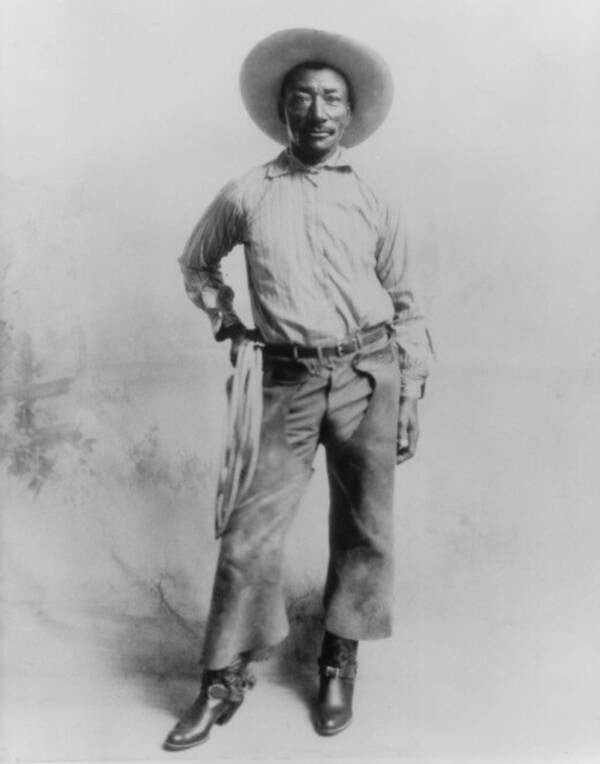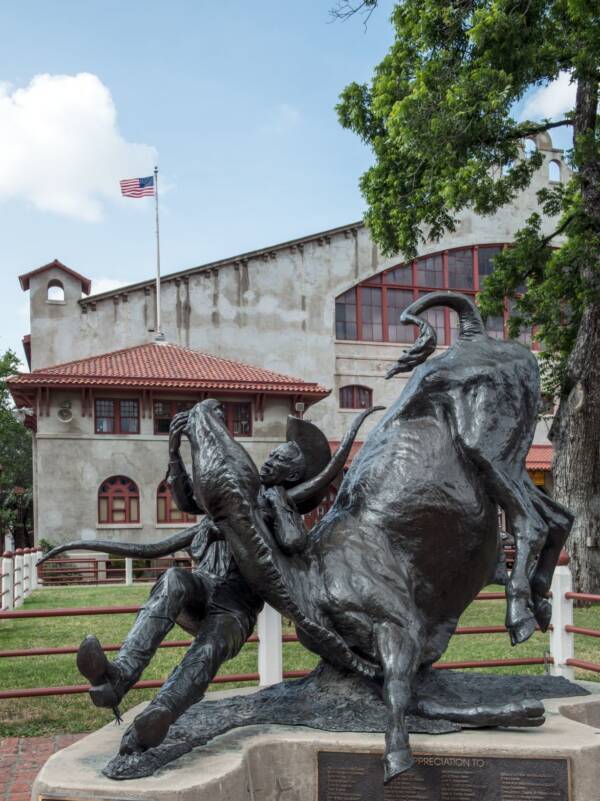Bill Pickett: The Inventer Of “Bulldogging”

Public DomainBill Pickett traveled the world to show off his cattle-wrestling skills.
A descendant of formerly enslaved people, Cherokee tribe members, and white people, cowboy Bill Pickett invented the sport of bulldogging, or cattle wrestling, after observing how herder dogs subdued steers by biting their lips. What if, Pickett wondered, people could do the same?
In the 1880s, Pickett put his theory to the test. In front of astounded audiences, he wrestled steers by grabbing their horns and biting their lips, bringing the large animals down. By the turn of the century, Pickett was a rodeo star that one promoter dubbed the “Dusty Demon.”
Pickett showed off his sport in front of crowds all over the American West, as well as in England, Canada, Mexico, and South America. Sometimes, his work could be perilous. A crowd of 25,000 in Mexico City turned on Pickett after locals bet him that he couldn’t fight a bull. When Pickett subdued the animal, the audience threw bottles at him, breaking his ribs.

Library of CongressA statue of Bill Pickett cattle-wrestling in Fort Worth, Texas.
Pickett also encountered racist rodeos that didn’t allow Black performers. Then, he pretended to be a full-blooded Cherokee to get into the ring. But film studios were slightly more accepting, and cast Pickett in The Bull-Dogger (1921) and The Crimson Skull (1922) — the first all-Black Western.
When he died at the age of 61 in 1932 after an unbroken horse kicked him in the head, Pickett’s friend, the humorist Will Rogers, quipped: “Bill Pickett never had an enemy. Even the steers wouldn’t hurt old Bill.”
Pickett left behind a truly wild legacy. His somewhat controversial sport of cattle wrestling is still practiced today, and Pickett himself has been honored by the National Cowboy and Western Heritage Museum’s Rodeo Hall of Fame, the Oklahoma Sports Hall of Fame, and other institutions.





